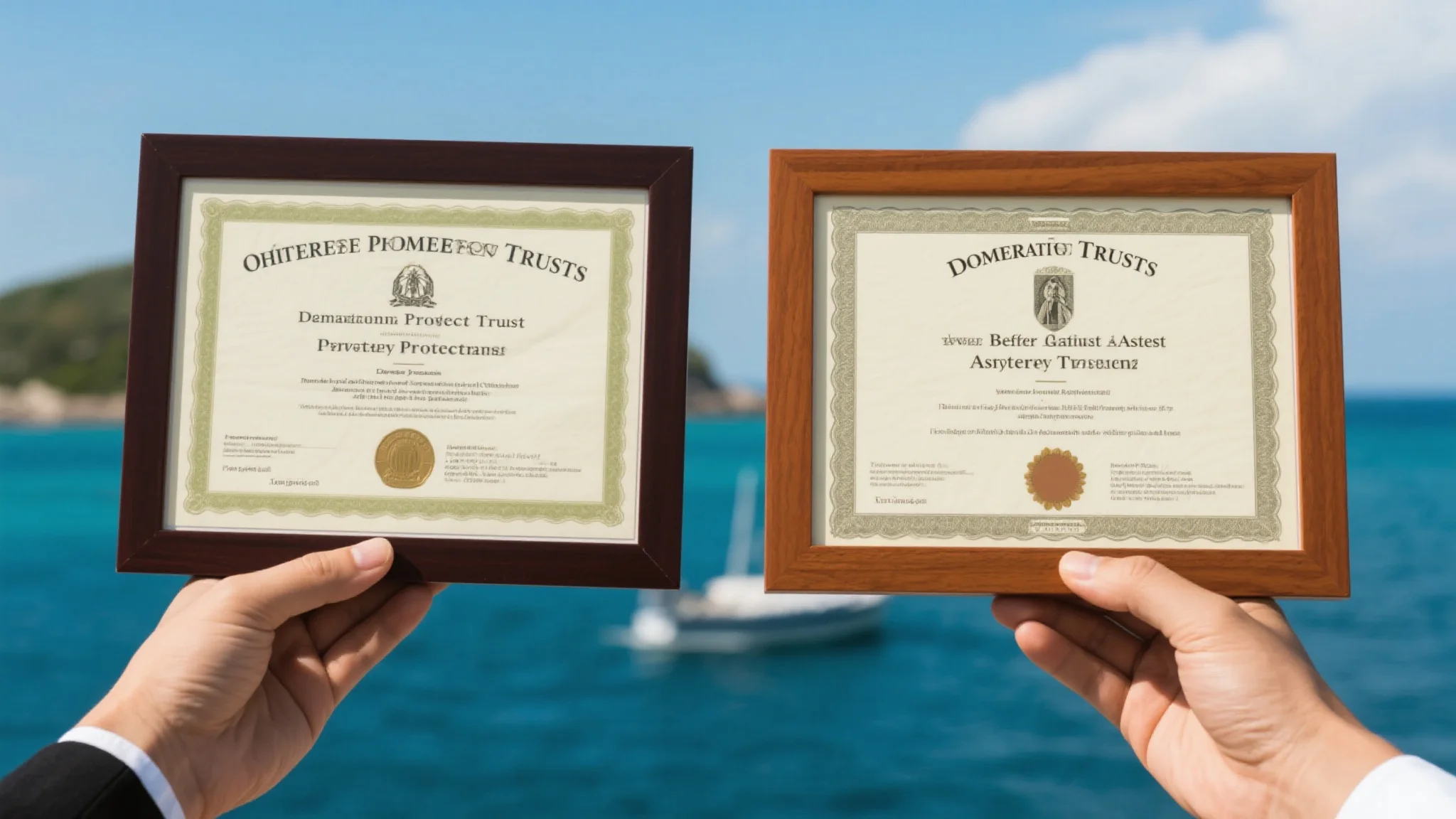
Offshore vs Domestic Trusts: Which Offers Better Asset Protection?
Offshore Asset Protection Fundamentals
Offshore asset protection involves establishing legal structures in foreign jurisdictions known for strong creditor protection laws. Popular destinations include the Cook Islands, Nevis, and Switzerland, each offering unique advantages. These jurisdictions typically feature short statutes of limitations for challenging asset transfers and require creditors to pursue claims in local courts.
When considering offshore asset protection, it’s crucial to understand the legal requirements and ongoing maintenance costs. Proper implementation requires working with experienced international attorneys who understand both U.S. laws and the chosen jurisdiction’s regulations. Timing is critical – assets must be transferred well before any potential claims arise.
Domestic Asset Protection Trust Advantages
A domestic asset protection trust (DAPT) offers similar protections without international complexities. States like Nevada, South Dakota, and Delaware have enacted favorable trust laws that provide robust creditor protection after specified waiting periods. These trusts allow settlors to remain as discretionary beneficiaries while shielding assets from future creditors.
The benefits of a domestic asset protection trust include easier administration, no currency exchange issues, and simpler tax reporting. However, domestic trusts may offer less protection against federal claims or existing creditors compared to offshore options. Proper funding and adherence to state-specific requirements are essential for maintaining the trust’s protective status.
Privacy Trusts for Confidential Wealth Management
Privacy trusts provide an additional layer of confidentiality beyond basic asset protection. These specialized structures minimize public records and shield beneficiary information from casual scrutiny. When combined with LLCs or other entities, they can create effective barriers against prying eyes while maintaining legal compliance.
Implementing privacy trusts requires careful balancing between confidentiality and legitimate financial transparency needs. The most effective structures allow for necessary disclosures to financial institutions while preventing unnecessary exposure to potential litigants or competitors. Jurisdiction selection significantly impacts the level of privacy achievable.
Dynasty Trust Setup for Multi-Generational Protection
Dynasty trust setup creates long-term wealth preservation structures that can last for generations. These irrevocable trusts leverage state laws allowing perpetual duration, avoiding estate taxes at each generational transfer. When properly structured, dynasty trusts protect assets from beneficiaries’ creditors, divorces, and poor financial decisions.
The complexity of dynasty trust setup demands specialized legal expertise. Key considerations include state selection, trustee appointments, distribution standards, and tax planning. Modern dynasty trusts often incorporate flexibility provisions allowing trustees to adapt to changing circumstances over decades.
LLC vs Trust for Comprehensive Asset Protection
The LLC vs trust for asset protection decision depends on specific goals and circumstances. Limited Liability Companies excel at operational flexibility and business asset protection, while trusts provide superior estate planning benefits and creditor shielding. Many high-net-worth individuals use both structures in combination for layered protection.
When evaluating LLC vs trust for asset protection, consider factors like control preferences, tax implications, and the nature of protected assets. LLCs managed by trusts can provide both operational control and long-term protection, creating a comprehensive wealth preservation strategy.
Building a Customized Protection Strategy
The most effective approach often combines elements of offshore asset protection with domestic asset protection trust structures. Privacy trusts enhance confidentiality, while dynasty trust setup provides multi-generational security. Understanding the LLC vs trust for asset protection tradeoffs completes the picture.
This comprehensive strategy addresses different threat vectors while accommodating unique family circumstances and asset types. Regular reviews with legal professionals ensure the plan remains effective as laws and personal situations evolve.
Implementing Your Asset Protection Plan
Proper implementation requires careful coordination between legal, tax, and financial advisors. Assets must be transferred correctly, entities properly maintained, and documentation meticulously organized. Beginning the process early, before any threats emerge, is crucial for achieving maximum protection.
By understanding these tools and working with experienced professionals, families can create robust defenses that preserve wealth while complying with all legal requirements. The peace of mind from comprehensive asset protection allows focus on growing and enjoying wealth rather than worrying about potential losses.


